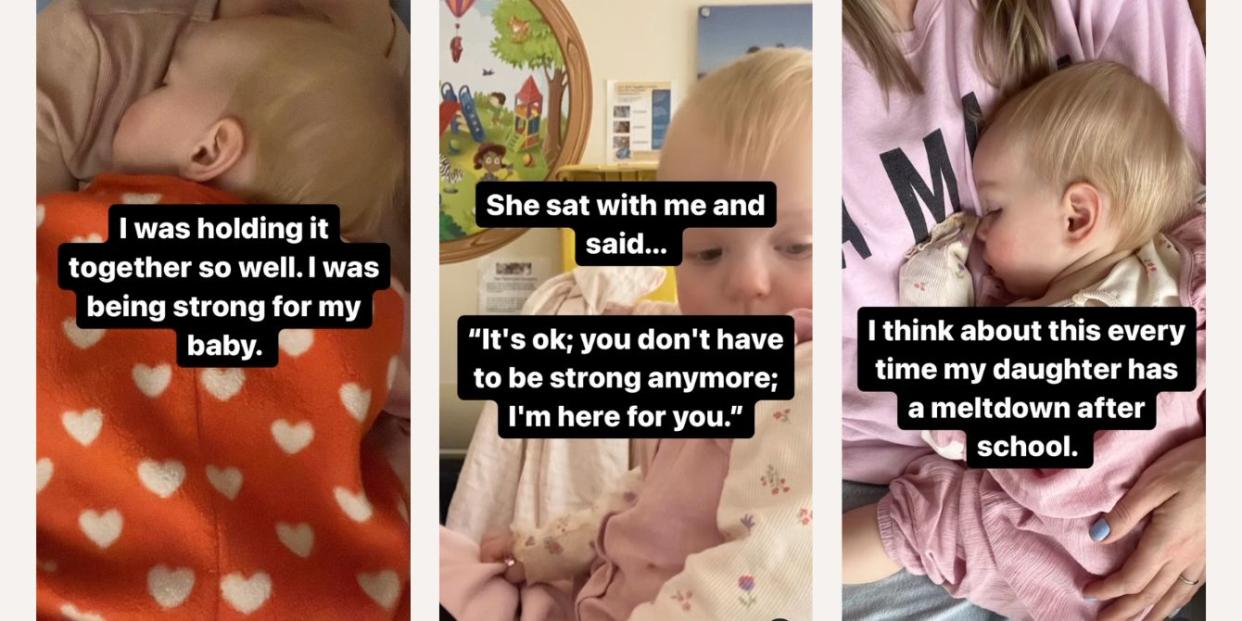Child therapist demonstrates the power of attachment parenting in a viral video, and now we’re crying

It doesn’t matter how old you are, sometimes seeing your mom while you’re going through something difficult brings the waterworks—especially if you’re a parent yourself. And that’s a good thing.
Child therapist and mother of three, Jess, who goes by @nurturedfirst on Instagram, shared an emotional reel demonstrating the power of attachment parenting. In the video, Jess explained how her infant daughter recently had to spend the night at the hospital. She focused on being strong for her baby during the stay and “was holding it together so well,” but when her mom came to bring her coffee the next morning she immediately began to cry. “I couldn’t hold back the tears anymore,” she wrote in the video.
Her mom’s response? “It’s okay; you don’t have to be strong anymore; I’m here for you.” Cue the sobs.
Jess went on to say she thinks about this whenever her daughter has a meltdown after school despite her teachers saying she had a “perfect day” and was “so good.” Some parents might associate this with their kid only being “bad” for them, but in reality it means your kid feels safest around you, just like how Jess felt with her mom.
“There was something about simply seeing my mom that made me, as a grown woman, burst into tears in that hospital room. And it’s the most beautiful example of an attached relationship,” she captioned the reel. “This is exactly what I want for my girls. I want them to see me and know that it’s safe to feel all of their feelings. I want them to know they can crumble into my arms and that I’ll be there to walk them through their emotions.”
The other part is keeping her kids safe while they’re melting down, both physically and mentally. “And, as part of this, I need my girls to know that when they experience these big feelings, part of keeping them safe means I can’t let them hurt themselves or others,” she went on to explain. “Part of keeping them safe is helping them develop coping tools. Part of keeping them safe is being curious with them about why after school is always so tough. Part of keeping them safe is preparing them for hard things.”
Although she used the term “attachment parenting,” Jess’s example is synonymous with gentle parenting. Although it sometimes gets a bad rap, gentle parenting is all about parents regulating their emotions and teaching their kiddos how to regulate theirs by giving them coping tools and leading by example.

